|
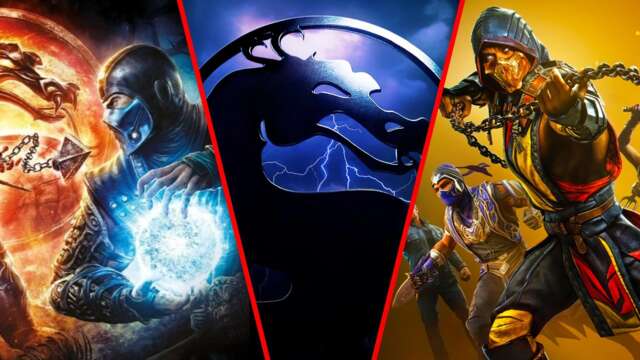
With Mortal Kombat 1 arriving in September and ushering in a fresh (sort of) start for the franchise, now is a great time to look at every game that led to this moment. The original Mortal Kombat was a landmark moment for gaming, one that pushed the limits of gaming hardware at the time with photorealistic warriors that stood apart from the more cartoonish visuals of fighting games of the era. Relentlessly violent and gruesomely innovative, Mortal Kombat would continue to evolve over the years and race toward the bleeding edge of interactive entertainment. As you'll see on our best Mortal Kombat games list below, that evolution often led to new peaks. Needless to say, we're looking forward to seeing what NetherRealm does with Mortal Kombat 1. There have been spin-offs and movies, Saturday morning cartoons, and live-action series over the decades, but nothing beats the core series of games that tell one overarching story across multiple timelines and Mortal Kombat tournaments. Most of these games have been great, perfect weekend fodder for when you have some friends around and you're looking to chill by ripping their guts out. In the game, that is. Some Mortal Kombats have also been terrible, some have been bafflingly bad, and we're listing them all below--starting with the very worst, an archaic entrant from the late '90s realm of three-dimensional brawling. We’re focusing on the core series of Mortal Kombat games, which means that spin-offs like Mortal Kombat Mythologies: Sub-Zero and Mortal Kombat: Shaolin Monks aren’t included on this list. Disclosure: GameSpot and Fanatical are both owned by Fandom.
11. Mortal Kombat 4 (1997)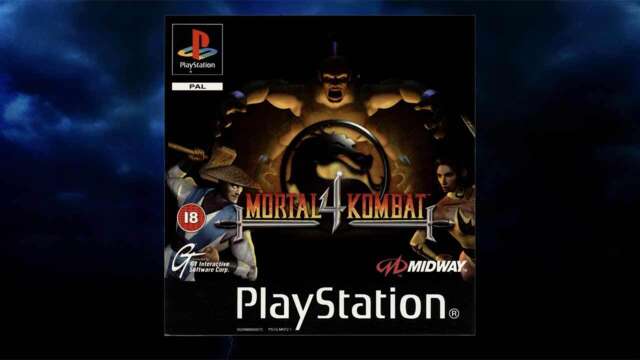
Mortal Kombat's first dive into the realm of three-dimensional brawling is easily the lowest point in the history of the franchise, even if Mortal Kombat Mythologies: Sub-Zero was released the same year. Ugly to look at in 1997 and harder on the eyes in 2023 than an X-Ray attack, Mortal Kombat 4 was even more horrible to play. Unresponsive controls, gimmicky 3D gameplay systems, and an underwhelming narrative all combine to create a lackluster entry in the series. But at least those wonderfully cheesy cinematics helped the game live on long after it had been succeeded by vastly improved chapters in the franchise.
10. Mortal Kombat: Armageddon (2006)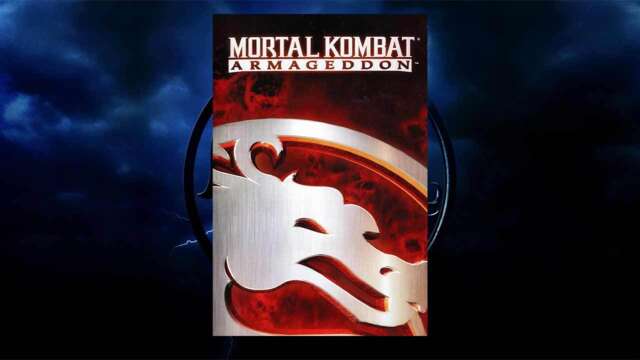
Bigger than Michael Bay's demolition budget on a film set, Mortal Kombat Armageddon was supposed to be the final chapter in the fighting game's saga that was too massive for its own good. Favoring quantity over quality, Armageddon's gigantic roster meant that cuts had to be made to squeeze every warrior onto a single disc. Individual fighting styles dropped from three to two, there were fewer unique fatalities, and the Konquest storyline paled in comparison to the superb tale of Shujinko in Deception. Armageddon was impressively ambitious and ended with a shocking cliffhanger that would pave the way for Mortal Kombat's best era, and it still had space for a few interesting ideas. The Create-A-Fighter mode gave players the option to create a custom character from a wide selection of body parts, costumes, weapons, and special moves, and to take things a bloody step forward, the Create-A-Fatality option allowed for the creation of custom finishers. Players could create their very own custom fatalities by stringing together different attacks and transitioning into their gory finisher. Read our Mortal Kombat: Armageddon review.
9. Mortal Kombat vs. DC Universe (2008)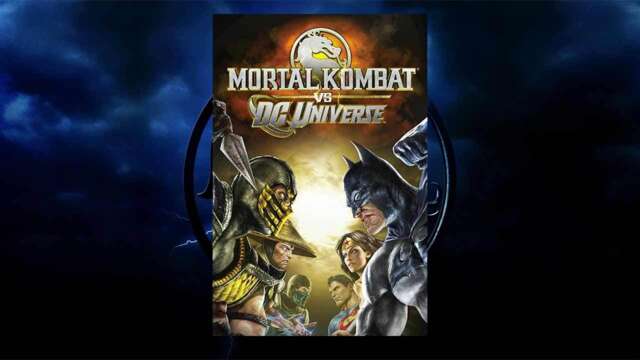
The "yes this actually happened" of the Mortal Kombat series, Mortal Kombat vs. DC Universe was a fascinating elevator pitch that arrived between Armageddon and the rebirth of the series in Mortal Kombat 9. DC's mightiest heroes taking on Mortal Kombat's deadliest warriors in the mother of all multiversal melees, the end result was instead a watered-down crossover that barely had any teeth thanks to a lower age rating. The combat was average at best, the storyline made very little sense, and the trademark gore had essentially been neutered. Fortunately, NetherRealm would find its DC Comics groove in the Injustice series, while Mortal Kombat prepared itself for a magnificent rebirth. It may not have been as over-the-top when it came to violence, but Mortal Kombat Vs DC Universe still introduced a few fascinating gameplay mechanics to the series. Klose Kombat allowed players to engage in close-quarters combat sequences with unique attacks and combos, Freefall Kombat gave players the chance to perform aerial attacks and try to position themselves advantageously before landing after they'd been knocked off a stage, and Kombo Challenges served as in-depth tutorials for each character. The other big addition here was the Story Mode, as the narrative fleshed out the crossover between universes and helped establish the formula that would be used for the well-received stories that would be told in future Mortal Kombat and Injustice games. Read our Mortal Kombat vs. DC Universe review.
8. Mortal Kombat (1992)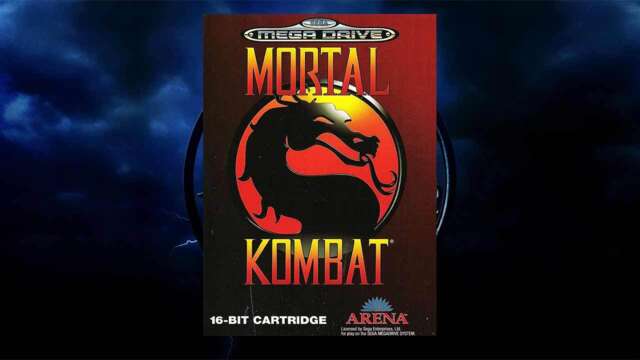
The original Mortal Kombat that laid the foundation for the franchise, Mortal Kombat today is a quaint reminder of just how far the series has come since those golden arcade days. The combat was stiffer than Street Fighter and the low kick attack could be spammed for cheap victories, but everything else about the game made it a must-play experience at the time, even if your parents forbid it. Digitized actors spilling entire blood banks worth of bodily crimson fluids, a final boss fight with Goro that could devour an entire federal reserve of quarters, and those glorious fatalities made Mortal Kombat an instant hit at the time and an all-time classic.
7. Mortal Kombat: Deadly Alliance (2002)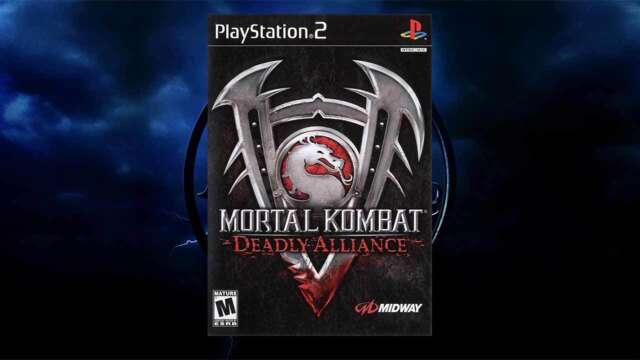
Deadly Alliance was an excellent restart to Mortal Kombat's 3D ambitions, but Mortal Kombat: Deception took that foundation and built a glorious palace of improved gameplay, fun modes, and new ideas that had a substantial impact on the flow of matches. After Shang Tsung and Quan Chi inevitably turned on each other, Onaga was awakened, and Raiden seemingly sacrificed himself, Deception emerged as the best Mortal Kombat of the 3D era. The gameplay was rock-solid, the new deathtraps in stages made each fight unpredictable when facing a cunning opponent, and Konquest mode expanded to become a fun adventure that was almost on par with Shaolin Monks, cementing the legacy of this incredible sequel. One of the other new features introduced in this Mortal Kombat was Hara-Kiri, as a defeated player could deprive their victorious opponent of the chance to do a fatality by performing a unique finishing move on themselves. Another big first for this Mortal Kombat was the introduction of online play on consoles, as players could finally connect to the internet and battle against opponents from around the world. Read our Mortal Kombat: Deadly Alliance review.
6. Mortal Kombat (2011)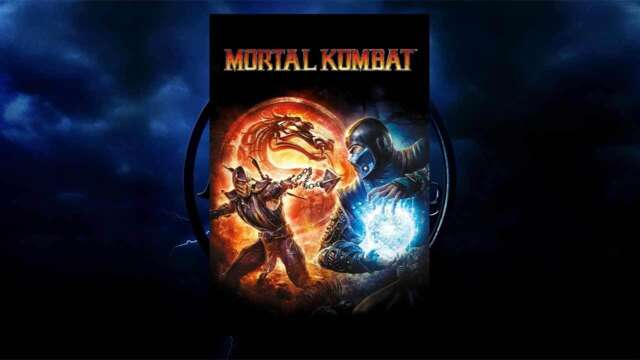
Fighting games had been in a precarious position throughout the 2000s, but after Capcom helped resurrect the genre with Street Fighter IV, it was only a matter of time until Mortal Kombat threw its razor-sharp hat into the ring. 2011's Mortal Kombat (commonly referred to as Mortal Kombat 9) is a rebirth that went back to its roots. Not only a narrative retelling of the original Mortal Kombat games that harvests the seeds planted by Armageddon, this Mortal Kombat also went back to basics with its gameplay. Other great gameplay systems used in the reincarnation of Mortal Kombat included Tag Team Battles in which players could strategically switch their partners in and out of combat, an improved combo system that could be used to perform longer and more intricate combos, and enhanced special moves in which more powerful signature attacks could be performed. Challenge Towers were another major addition, as this system of unique gameplay scenarios rewarded players with unlockable content. And who could forget the introduction of those devastating X-Ray attacks that provided a gruesome front-row seat to all the carnage that was being inflicted on bodies? This is the Mortal Kombat that proved that fighting games can tell terrific stories, and that benchmark would only rise with the release of each subsequent sequel. Read our Mortal Kombat review.
5. Mortal Kombat X (2015)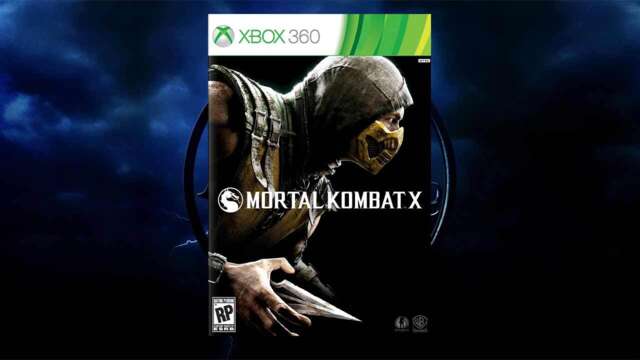
MK9 admittedly had a few rough spots, but Mortal Kombat X smoothed them over with more polished gameplay and even more impressively ultra-violent graphics. It's a textbook sequel that raises the stakes and improves on the foundation of the game that came before it, but Mortal Kombat X stands out from the pack with its brilliant storytelling and one of its best rosters yet, a highlight reel of next-generation heroes and villains who hold the fate of all their realms in their hands. From the ice-cold Erron Black to the cheeky Cassie Cage and the downright disturbing D'Vorah, Mortal Kombat X shifted the series into a higher gear. One of the more groundbreaking features introduced in this Mortal Kombat was the Variation system. Each character had three distinct variations that offered different moves, abilities, and playstyles, allowing for more flexibility, and interactive environments provided useful elements that cunning players could utilize in battle. With online gaming a major part of its design, Mortal Kombat X also updated its challenge towers with more dynamic objectives that changed regularly. Faction War introduced a meta-game where players aligned with one of five factions--Lin Kuei, White Lotus, Special Forces, Brotherhood of Shadow, or Black Dragon--and earned points by completing various in-game activities in this friendly competition between groups. Read our Mortal Kombat X review.
4. Mortal Kombat II (1993)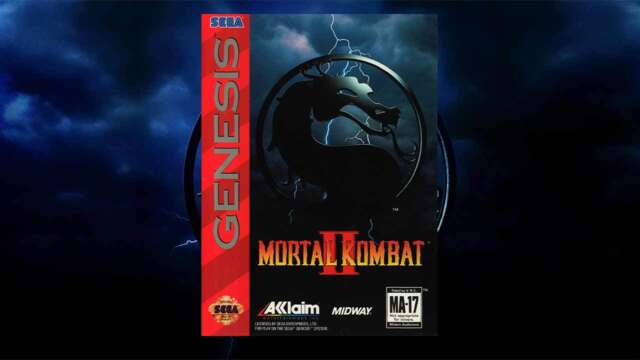
If the original Mortal Kombat was a controversial game, then Mortal Kombat 2 was just asking for trouble. Slicker and quicker than the first game, Mortal Kombat 2 dialed up its ability to shed digital blood and introduced some of the most memorable fatalities of the series to fans. On top of that, the game also poked fun at concerned parents with its over-the-top friendship finishers, expanded its roster, and had some of the most iconic art direction in the franchise. Look past the flashy special moves and unhinged bloodletting, though, and you'll find a game that had evolved to not only stand toe-to-toe with some of its biggest competitors but put them on notice with a killer combo of style and substance.
3. Mortal Kombat: Deception (2004)
Deadly Alliance was an excellent restart to Mortal Kombat's 3D ambitions, but Mortal Kombat: Deception took that foundation and built a glorious palace of improved gameplay, fun modes, and new ideas that had a substantial impact on the flow of matches. After Shang Tsung and Quan Chi inevitably turned on each other, Onaga was awakened, and Raiden seemingly sacrificed himself, Deception emerged as the best Mortal Kombat of the 3D era. The gameplay was rock-solid, the new deathtraps in stages made each fight unpredictable when facing a cunning opponent, and Konquest mode expanded to become a fun adventure that was almost on par with Shaolin Monks, cementing the legacy of this incredible sequel. One of the other new features introduced in this Mortal Kombat was Hara-Kiri, as a defeated player could deprive their victorious opponent of the chance to do a fatality by performing a unique finishing move on themselves. Another big first for this Mortal Kombat was the introduction of online play on consoles, as players could finally connect to the internet and battle against opponents from around the world. Read our Mortal Kombat: Deception review.
2. Mortal Kombat 3 (1995)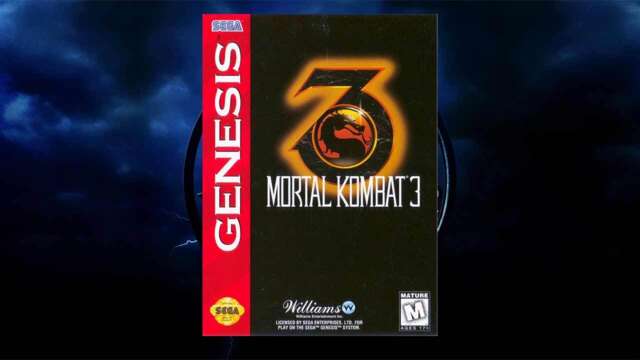
Mortal Kombat 3 hits that sweet spot for classic gameplay and fascinating new systems, blending fresh ideas with the trademark violence of the series. You could now close the gap by charging at your opponent, memorizing long strings of combos allowed you to melt through an opponent's health bar, and you could pour salt in the wounds of your opponents with Brutalities, Mercies, and Animalities. Sure, the game might have lacked a few key faces in its roster, but Midway's Ultimate Mortal Kombat 3 more than made up for that slip with an expanded cast that capped off the early 2D era of the series in grand style.
1. Mortal Kombat 11 (2019)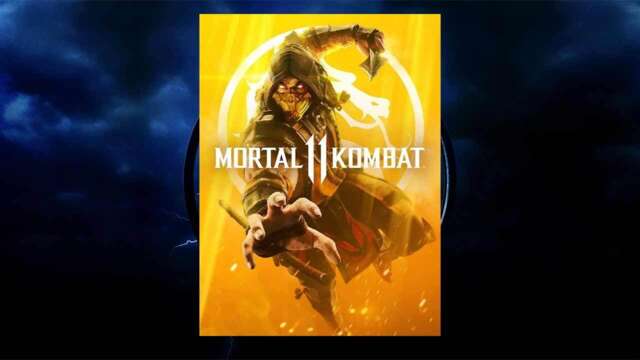
We don't know yet how Mortal Kombat 1 will shape up, but we do know that it has a high bar to clear thanks to Mortal Kombat 11. A love letter to the entire franchise, Mortal Kombat 11 has it all. After Mortal Kombat 9 and X set the stage for an ambitious conclusion to not one but two timelines of Mortal Kombat games spread across decades, Mortal Kombat 11 takes that ball and scores a goal for the ages. In this outing, custom character variations greatly expanded on the system introduced in Mortal Kombat X. Each character had multiple custom variations that players could create and customize with different moves, abilities, and cosmetic options, allowing for even more versatility. Krushing Blows, powerful cinematic attacks triggered by specific conditions during a match, were added, Fatal Blows were special comeback moves that could be executed when a player's health dropped below a certain threshold, and the Flawless Block mechanic opened up counter-attack opportunities when attacks were perfectly parried. On top of that, the introduction of defensive and offensive meters added new tactical layers to the game. The defensive meter allowed for various maneuvers such as rolls, breakaways, and amplified versions of special moves, while the offensive meter enabled techniques like amplifying special moves for added damage or extending combos. It built on Mortal Kombat lore and left no stone unturned, pushed the series to new heights in the fighting game community with its robust selection of modes, and delivered not only its best gameplay mechanics but also the most flexible in the entire series with its expanded variant combat and gear systems. Mortal Kombat 11 is a celebration of the franchise, and one that's made all the better with the Aftermath expansion that saw the return of actor Cary-Hiroyuki Tagawa's delightfully devilish Shang Tsung, ripped straight from the cult-classic 1995 movie. With post-launch support that allowed you to see if Rambo, Robocop, and so many more guest stars could take on the likes of Scorpion and Johnny Cage, Mortal Kombat 11 was proof that NetherRealm had saved the best for last. Read our Mortal Kombat 11 review.
|
















